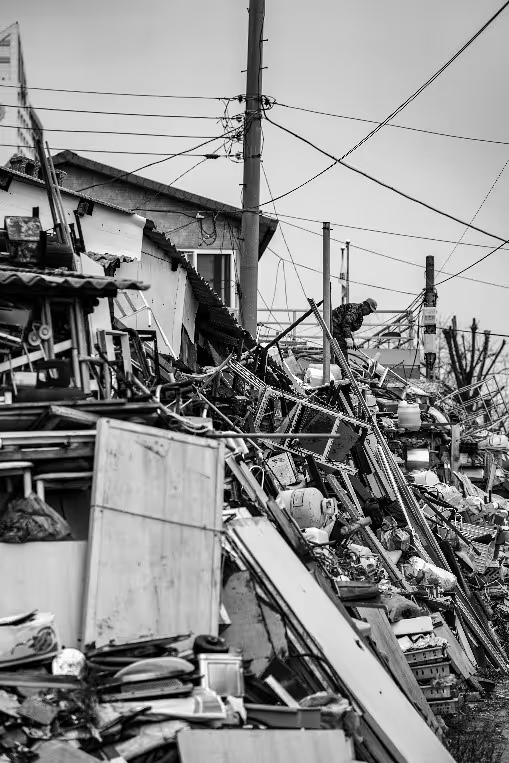International Day of People with Disability: Learning from Shelter Response

Response, recovery, and disability
An innocuous consequence of COVID-19 has been the introduction of a new lexicon to many people. Language that was largely reserved to disaster management professionals and humanitarian responders is now in common usage. Today, we are all conscious there may be a need to ‘shelter in place’ and have a vested interest in effective ‘preparedness’, coordinated ‘response’, and ‘building back better’.
The theme for this year’s International Day for People with Disabilities is 'Fighting for rights in the post-COVID era’. We are being urged to reflect on the impacts that COVID-19 has had on people with disability.
On this International Day we reflect on how our work on Preparing Actionable Data for Inclusive Shelter (PADIS) aims to contribute to supporting the realisation of the rights of people with disability within humanitarian crises, whether it is a health emergency, natural hazard disaster, or conflict.
COVID-19 and disability
The COVID-19 pandemic and response has done little to rewrite the narrative on disability and disasters. People with disability remain disproportionately impacted and frequently excluded from response and recovery. During COVID-19, we have seen consideration of do-not-resuscitate orders, higher mortality rates, increased barriers to education for children with disability, and lower vaccine coverage in comparison to people without disability. The story has largely remained the same.
There have, however, been positives. Organisations of People with Disability (OPD) that had previously not been able to participate in discussions in metropolitan centers have been adding their voices by video call. OPDs have also been leading research on the impacts of COVID-19 and the pandemic response on people with disability and filling gaps left by research institutes, government, and non-government organisations. These examples are reminders that considering people with disability as simply being ‘vulnerable’ in times of crises is inherently flawed.
Awareness and commitments
Awareness of the need to improve disability inclusion in humanitarian response has grown over the last decade. There have been new global commitments, frameworks, standards, and guidance. These have been extended to include older people, many of whom can face similar barriers to access and participation during humanitarian crises. Yet as our response to COVID-19 has demonstrated, we are still not adequately translating these commitments into action.
There are a range of reasons for slow progress on disability and older age inclusion. These include institutional inertia inadequate planning and resourcing, or preparedness in disaster management speak and the misconception that not deliberately excluding people with disability equates to inclusion. There are also signs that available guidance may not always be hitting the mark.
Guidance
Guidance on improving the inclusion of people with disability in both development programming and humanitarian action is centered, broadly speaking, on three core actions:
- Partner with OPDs and individuals with disability.
- Mainstream disability inclusion across all programme activities alongside providing targeted interventions to ensure people with disability can meaningfully participate. This is known as the twin-track approach.
- Collect and apply disability data, including the disaggregation of data by disability.
This guidance aims to help answer the question: how do we translate commitments to disability inclusion into practice? The guidance is sound and if more organisations were to put these actions into practice, we would be in a better place today. At the same time this guidance remains high level and generic. As such, there is room to question whether it is sufficient to adequately inform increasingly specialised humanitarian operations in complex environments.
Learning from the shelter sector
Delivering appropriate and durable shelter solutions in response to natural hazard disasters and conflict provides the foundation for recovery, including ensuring health, personal security, and well-being, and facilitating a return to school and work. In recent years, the humanitarian shelter sector has also made efforts to move towards greater disability inclusion. In turn, this has raised the concern that more tailored and sector specific guidance is needed.
Our Preparing Actionable Data for Inclusive Shelter (PADIS) project is exploring the disability and older age data needs of humanitarian shelter professionals. Although data is only one part of the picture, it is an important one. Appropriate and useable disability and older age data underpins effective planning and decision making to ensure an inclusive response. We will also explore possibilities of ensuring disability and older age data is in place and available to shelter professionals immediately during a humanitarian response.
We are not aiming to answer all the questions about how to deliver disability and older age inclusive humanitarian responses. But we do want to help move the conversation forward. As COVID-19 has illustrated, and as this year’s International Day for People with Disability reminds us, this is urgently needed.
Stay updated
Sign up for our newsletter to receive regular updates on resources, news, and insights like this. Don’t miss out on important information that can help you stay informed and engaged.
Explore Elrha
Learn more about our mission, the organisations we support, and the resources we provide to drive research and innovation in humanitarian response.


.png)